Research and innovation know no borders
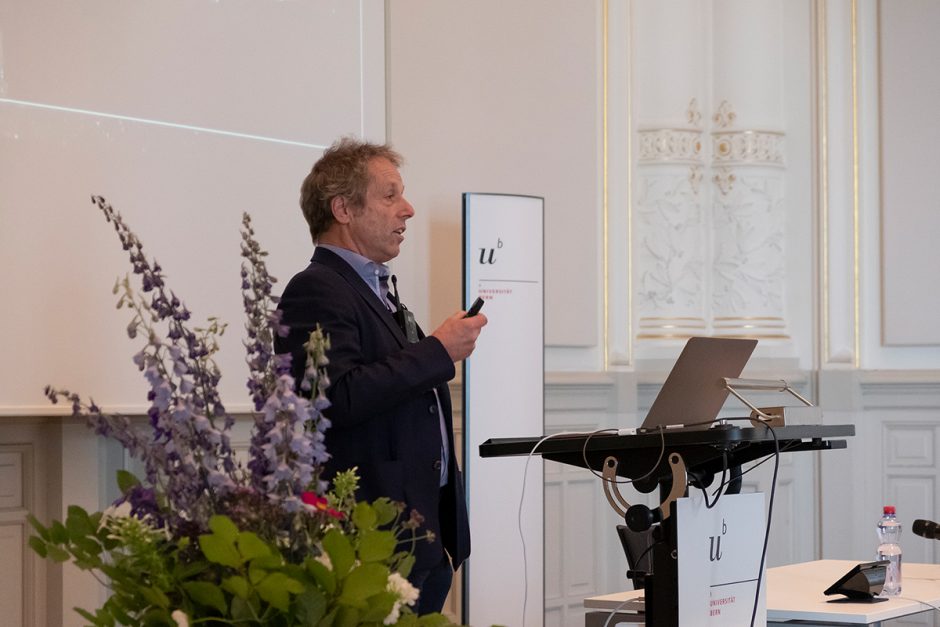
International cooperation is of the utmost importance to the University of Bern, principal Christian Leumann emphasised during the visit of a high-ranking German delegation on 1 September as part of an information trip at the invitation of Präsenz Schweiz. The University of Berne used a number of current examples to show that top-level research today is only possible in collaboration.
By Brigit Bucher and Nicola v. Greyerz
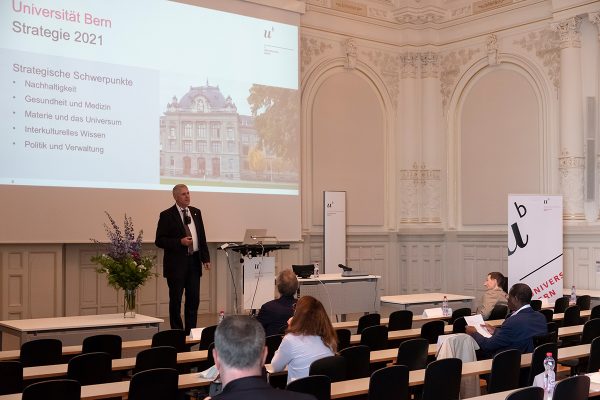
Principal Christian Leumann introduced the University of Bern. Because of the protective regulations surrounding the coronavirus, the guests were asked to keep their distance and wear masks. All pictures: © University of Bern, pictures: Vera Knöpfel
According to Christian Leumann, Switzerland has always had a very high proportion of foreign researchers. This is an important part of the success of the local research centre. He also made it clear that Switzerland’s association with “Horizon Europe” is central to the strongly internationally oriented research in the country and at the University of Bern. How attractive Switzerland would remain for researchers and students would also depend very much on the future relationship between Switzerland and the EU.
“For this reason, membership of The Guild – the association of research-intensive universities within Europe – is all the more important and valuable,” Leumann said with conviction, even if this in no way replaces association with a research agreement.
Success with major international projects
Willy Benz, Professor of Astrophysics, used the CHEOPS space telescope as an example to show what successes can be achieved together. This telescope began its journey into space on 18 December last year and is designed to observe exoplanets, i.e. planets outside our solar system.
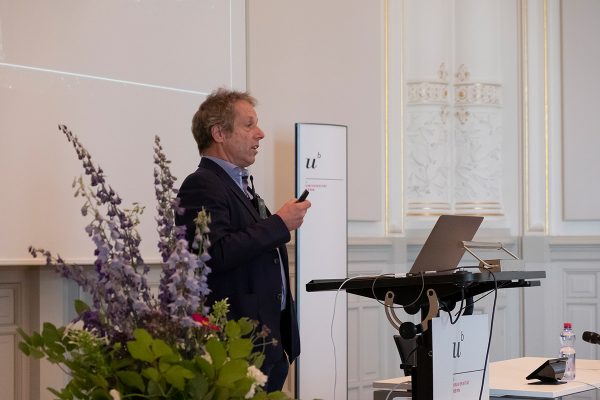
Willy Benz is the principal investigator of the CHEOPS consortium.
“Under the leadership of the University of Bern and the European Space Agency ESA, a consortium of more than one hundred scientists, engineers and scientists from eleven European nations was involved in the construction of the satellite over a period of five years,” Benz explained. The most important thing for such international projects, he said, was that expertise and financing remain stable over a long period of time – this was the only way to successfully implement such complex projects.
Of ice cubes and shaking tables
Guests from the German Bundestag, the federal states and German universities were able to convince themselves of the excellence of the research and innovation power at the University of Bern during a tour of the Exact Sciences building.
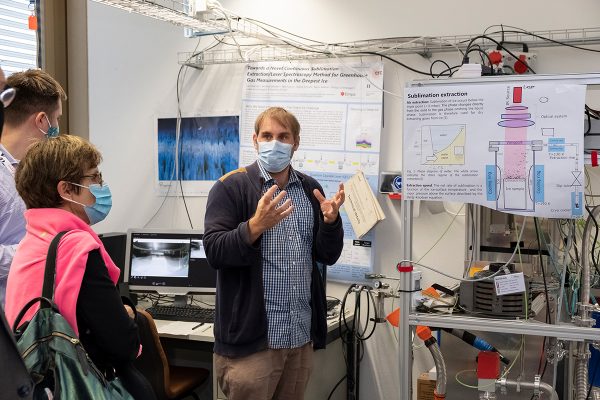
Lars Mächler in one of the climate research laboratories at the University of Bern
Climate researcher Lars Mächler gave those present the opportunity to pick up ice cubes that are several hundred thousand years old and contain the greenhouse gases of the atmosphere of that time.
In the large laboratory for space research, Daniele Piazza explained the shaking table to the guests: all space instruments are tested here to see whether they will survive a rocket launch.
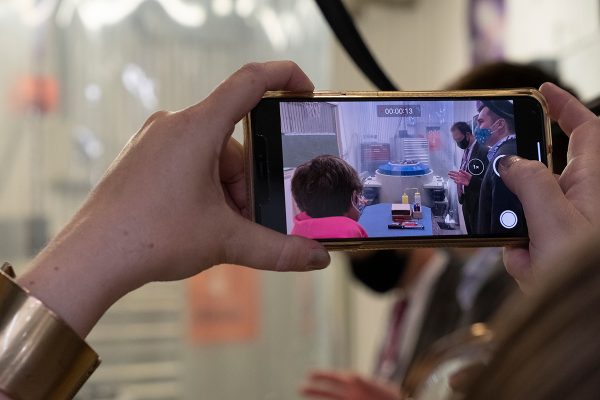
In the background is the shaking table on which the space instruments are placed.
In the so-called MEFISTO laboratory, André Galli explained how instruments are calibrated for their use in space.
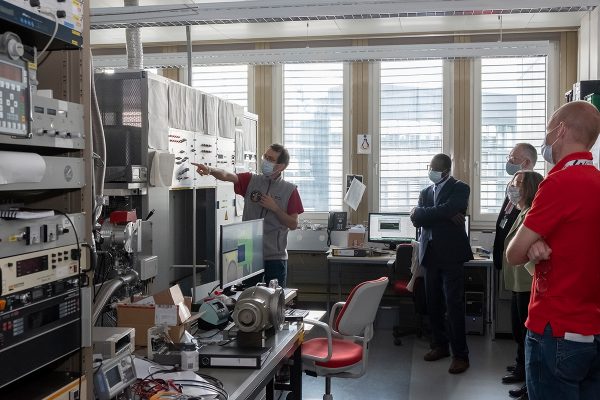
André Galli and guests in the MEFISTO laboratory.
In the facility, particles are accelerated to simulate the situation in space. Space agencies from all over the world come to Bern to calibrate their space instruments, as it is the only facility capable of producing this type of particle.
In the Wandelhalle, the Director of the Institute of Physics, Nicolas Thomas, shows images from the Bernese Mars camera CaSSIS, which was built and developed under his supervision at the University of Bern.
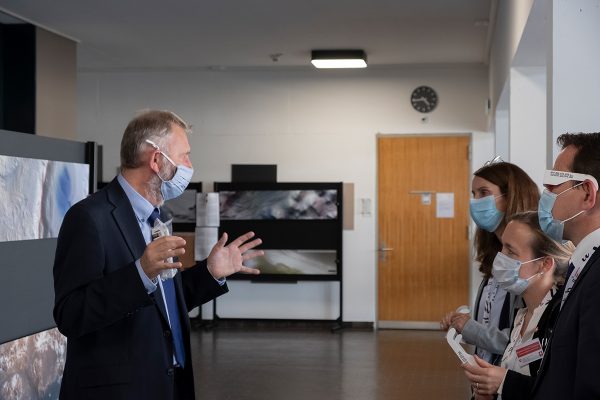
Nicolas Thomas also stressed the importance of international collaborations and cooperation with industry in the field of space research.
All these projects are imperatively dependent on good international cooperation and the exchange of knowledge across borders. Or as Hubertus Fischer, Professor of Climate and Environmental Physics, who will drill with his research group in the project “Beyond EPICA – Oldest Ice” in Antarctica for 1.5 million years of old ice in order to obtain relevant information on climate change from the air trapped in it, put it somewhat pointedly: “For Switzerland it would mean a disaster if it could no longer be involved in such pan-European projects.
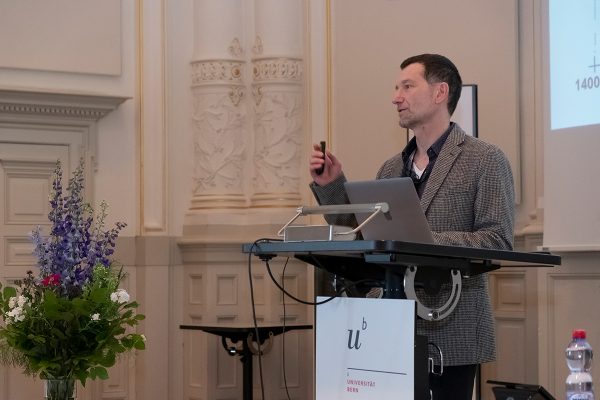
The financial and logistical effort for ice drilling in the Antarctic can only be shouldered in international cooperation, said Hubertus Fischer.
Categories: External Newsletter

